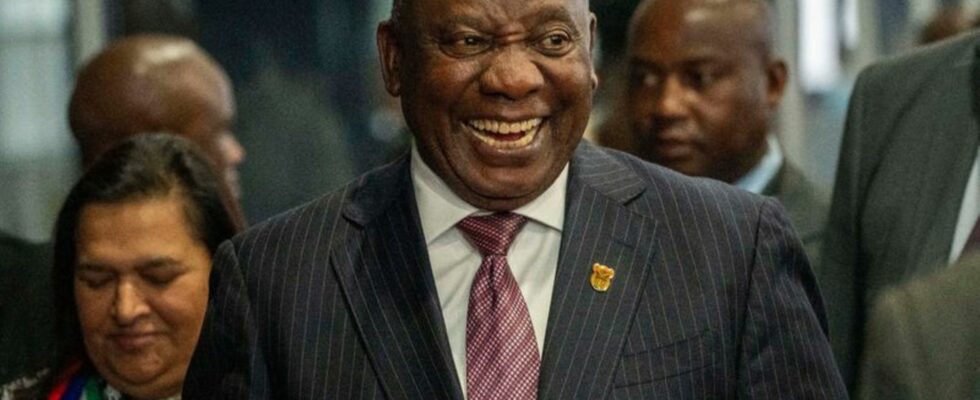Choose
South Africa’s President Ramaphosa confirmed for second term
South Africa’s President Cyril Ramaphosa has been confirmed for a second term by the country’s newly elected parliament. Photo
© Jerome Delay/AP/dpa
Despite the historic loss of power by the ruling ANC party, Ramaphosa was confirmed in office. He now faces a mammoth task: forming a stable government.
South Africa’s President Cyril Ramaphosa has been confirmed for a second term by the country’s newly elected parliament. The 71-year-old received 283 out of 339 votes, Chief Justice Raymond Zondo announced.
Ramaphosa, the leader of the African National Congress (ANC), will now form a new government. The ANC says it is striving for cooperation with all parties represented in parliament. The so-called Government of National Unity is a kind of grand coalition, but without any fixed coalition agreements. A letter of intent was signed on Friday with the largest opposition party to date, the Democratic Alliance.
In the parliamentary elections on May 29, the ANC, the party of former anti-apartheid fighter Nelson Mandela, suffered a massive loss of power. This means that the party of former anti-apartheid fighter Nelson Mandela will no longer govern the continent’s strongest economy alone and will have to form a coalition for the first time in 30 years. The ANC has 159 of 400 parliamentary seats, while the Democratic Alliance is represented in parliament with 87 MPs.
John Steenhuisen, a leading DA politician, said in Cape Town that after two weeks of intensive negotiations, a “new chapter” was beginning in South Africa. The signed declaration of intent stated that such a coalition, which would include other parties, was in the interests of all South Africans.
However, not all ANC representatives are happy about cooperation with the economically liberal Democratic Alliance, which, in the eyes of some ANC supporters, primarily represents the interests of the white minority in South Africa.
Negotiations between the ANC and other parties represented in Parliament are still ongoing, and political commentators have already warned that a government of national unity could lead to an unstable and inefficient government.
Reforms are urgently needed in the country of 61 million inhabitants. South Africa has been suffering for years from an ailing economy, mass unemployment, deep-seated corruption, ailing state-owned companies and a crumbling health and education sector.

